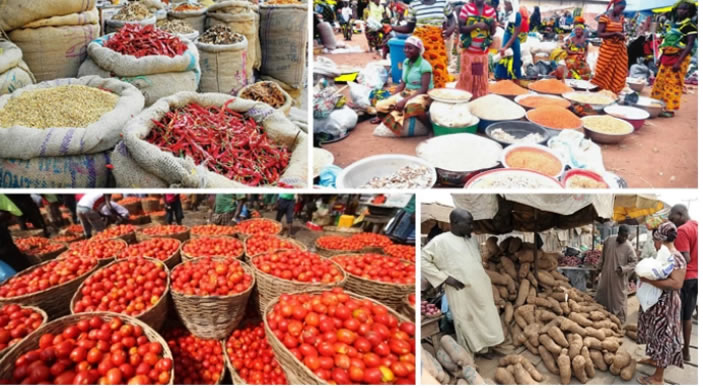The United Nations has called on the Nigerian government to tackle climate change, pest infestations, and other threats to agricultural productivity as it has predicted that 82 million Nigerians, about 64 per cent of the country’s population, may go hungry by 2030.
The wake up call is coming amidst persistent hike in food prices in the country.
Nigeria’s food inflation rate hit a record high of 40.66 per cent in May 2024, surpassing the previous month’s 40.53 increase, the National Bureau of Statistics had indicated
Since the Bureau started keeping records in 1996 the present surge represents the largest year-on-year increase in food prices
From available records, food inflation in Nigeria has averaged 13.42 per cent, with the lowest point of -17.50 per cent in January 2000.
In 2023, the Food and Agriculture Organisation predicted that no fewer than 2.6 million Nigerians in Borno, Sokoto and Zamfara states, and the FCT may face a food crisis between June and August 2024.
According to a government-led Cadre Harmonisé analysis released in March, 2024, approximately 4.8 million people in Borno, Adamawa and Yobe states are experiencing severe food insecurity, the highest level in seven years.
Also, as Nigerian workers commemorated the 2024 May Day, Organised Labour expressed concern about the country’s rising food prices and fuel scarcity, saying that the current situation threatened the survival of workers.
A Senior Advocate of Nigeria, Olisa Agbakoba, also recently warned that a hunger riot might soon break out in Nigeria, calling on the Federal Government to act fast.
Speaking recently at the launch of CropWatch in Abuja, the Resident Humanitarian Coordinator of the Food and Agriculture Organisation, represented by one of the UN officials, Taofiq Braimoh, said, “The government of Nigeria, in collaboration with others, conducts an annual food security survey. This year’s results are alarming: approximately 22 million Nigerians will face food insecurity in 2023, and around 80-82 million are at risk of severe food insecurity by 2030.
“Nigeria, like many countries, grapples with food insecurity, climate change, unreliable water patterns, pest infestations, and other threats to agricultural productivity. As an agrarian society, our farms’ success directly impacts food availability for our population. Leveraging technology is crucial to strengthening our agriculture sector and ensuring food security.”
He stressed that satellite-based crop monitoring provided real-time data on crop conditions, enabling farmers and policymakers to make informed decisions and optimise agricultural practices.
He noted that the technology could help expedite the accomplishment of sustainable development goals in food and agriculture

